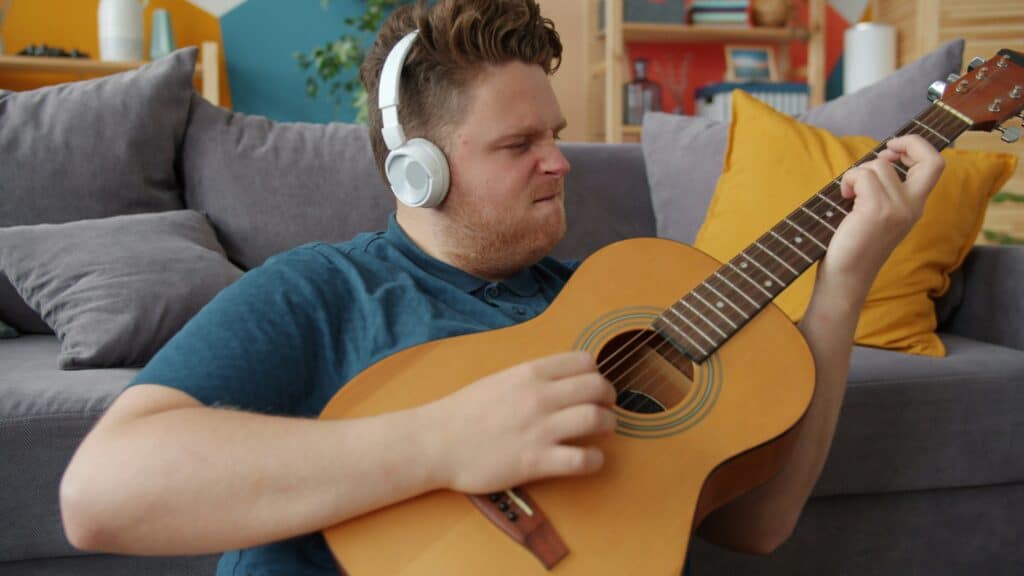
Music Lesson Cancellation Policy: How to Handle Cancellations, No-Shows, and Late Payments Professionally
Running a successful music teaching business isn’t just about delivering great music lessons, especially private lessons, it’s also about managing the business side of things with confidence and professionalism. As music teachers, we pour time and energy into our students’ progress, but we also face real challenges when students cancel last-minute, miss lessons without notice, or delay payment. Respecting the teacher’s time is essential, and implementing clear cancellation policies helps protect both your schedule and income. A well-defined cancellation policy values the teacher’s time by ensuring it is not wasted and is compensated, which helps protect your income and encourages student commitment.
Inconsistent attendance and financial uncertainty can affect your income, time management, and emotional energy. That’s why having a clear strategy for dealing with cancellations, no-shows, and late payments is crucial, not only to protect your business but to maintain a positive teaching environment. This guide is designed for private music teachers who manage their own private music studio and want to establish effective policies.
In this guide, we’ll walk through how to set boundaries, enforce policies professionally, and build trust with students and parents, so your studio can run smoothly and profitably.
Why These Issues Matter
When students skip lessons, cancel last-minute, or don’t pay on time, the impact goes beyond money. It disrupts your schedule, causes frustration, and undermines the mutual respect that should exist between teacher and student. Frequent cancellations can negatively impact both the teacher student relationship and the student teacher relationship, making it harder to build trust and maintain effective communication.
Setting weekly expectations or structuring your cancellation policy around the week can help manage cancellations and maintain professional boundaries, making it clear when rescheduling is possible and what notice is required.
Establishing clear, professional policies protects your time and energy while setting expectations for your students. A clear policy also helps manage missing and missed lessons, supporting both professionalism and positive relationships. Whether you teach in-person, online music lessons, or offer a hybrid model, these best practices will help you handle tricky situations with grace and authority.
Setting Studio Policies That Protect You
The first step in handling these challenges is preventing them with proactive planning. You can’t control other people’s actions, but you can create policies that set expectations and hold everyone accountable. It is essential to have a clear policy and to write your own cancellation policies to reduce misunderstandings and ensure smooth operations. Private music teachers must decide on the best approach for their studio, whether to implement a strict cancellation policy or offer more flexibility for cancellations and rescheduling. There are many ideas for policy options, and the point of these policies is to maintain professionalism and run successful businesses.
1. Cancellation Policy
Include a clear cancellation window in your studio policies. For example, 24-48 hours notice being required for cancellations; this notice period helps manage last minute cancellations and late cancellations, reducing disruptions to lesson times and lesson scheduling. A 24–48 hour cancellation policy is standard for most music teachers. Be specific in your terms:
“Cancellations must be made at least 24 hours in advance to avoid being charged for the full lesson.”
Short notice cancellations can disrupt scheduled lesson times and make it difficult to fill open slots, so clear communication is essential.
This policy should be communicated clearly at the time of registration, and reiterated in writing, through your website, onboarding materials, or welcome email. Teachers may expect students to communicate cancellations in advance, and if a lesson time becomes available, it may be filled by another student. Policies may be structured around a semester or a set number of weeks, which affects billing and scheduling. At the beginning of the teaching relationship, the course structure and lesson time expectations should be clearly communicated.
Also, outline how cancellations can be made (text, email, booking app) and whether makeup lessons or a make up lesson may be offered. If students miss scheduled appointments or cancellations occur due to unforeseen circumstances, your policy should specify if and how make up lessons are provided, such as allowing students to schedule make up lessons within a certain timeframe or during designated make up days. Students can reschedule for the next lesson if possible. If you provide online lessons, consider offering the option to switch from in-person to virtual as a backup. Students cancelling at the last minute or missing lessons may still be required to be paid for the lesson, and teachers may decide whether to offer a makeup lesson or not, depending on the circumstances and studio policy.
2. No-Show Policy
A no-show occurs when a student doesn’t attend a scheduled lesson without notice. No-shows are considered missed lessons and are still paid. These should be treated as billable lessons.
“No-shows will be charged at the full rate, and the lesson will not be rescheduled. The lesson will be paid even if missed.”
Your time is valuable, and the goal isn’t to be punitive, but to help students and families respect the time you’ve reserved for them.
3. Late Payment Policy
Clearly state when payment is due, before the lesson, weekly, monthly, or by a specific date, and what happens if payment is late.
“Invoices are due by the 1st of each month. Late payments will incur a 10% fee after a 5-day grace period.”
You might also automate payments using tools like Stripe, PayPal, or direct debit via teaching platforms. This helps eliminate awkward conversations and keeps your cash flow stable.
Communicating Your Policies Professionally
Once you’ve developed your music teacher policies, the next step is clear communication with the student or parents of the student. The best time to talk about cancellations and payments is before problems arise, not after.
Here’s how to make your policies clear and respected:
- Include them in a welcome pack or policy agreement that students and their studio families sign
- Post them on your website and studio bulletin board for all studio families to access
- Review them verbally during the first lesson or parent meeting, making sure studio families hear and understand the details
- Send polite reminders when students enroll or resume after a break, and invite studio families to share any feedback or concerns they may have
It’s important to hear feedback from students and studio families about your policies, as this helps build trust and improve your studio environment. Always express hope that students and families understand and appreciate your policies, showing empathy and care in your communication.
Avoid long, formal language. Be friendly but firm. Clarity now saves stress later.
Enforcing Policies Without Guilt
As a teacher, you might feel uncomfortable enforcing policies. But consistency is key. It’s important to set clear expectations at the beginning of the teacher-student relationship, so everyone understands the policies from the start. Over time, I’ve learned that enforcing these policies helps build trust and respect with students and parents. You’re not just a music teacher, you’re running a music teaching business, and treating it as a job requires professionalism and consistency. Upholding your own boundaries ensures long-term sustainability.
Here’s how to approach these situations:
Late Cancellation Example:
“Hi, I understand things come up! Since the lesson was cancelled within the 24-hour window, today’s session is still billable. I appreciate your understanding, let me know if you’d like to schedule a makeup online.”
Late Payment Example:
“Hi, just a quick reminder that your lesson payment is overdue. If you’ve already sent it, feel free to disregard this message. Otherwise, I’ll need to apply the late fee by Friday. Thanks for your attention!”
Remain polite, respectful, and consistent. The goal is to uphold your policies, not damage the relationship.
Offering Flexibility (Within Limits)
While structure is important, it’s also okay to show flexibility when appropriate. Life happens, and some grace can build goodwill. Consider offering:
- One free cancellation per term
- Switching an in-person lesson to an online lesson
- Access to a pre-recorded video or learning material in place of a missed session
- Alternative practice materials or support to help students continue their practice routine if they miss a lesson
Just make sure your flexibility doesn’t become the new standard. When you make exceptions, explain that it’s a one-time courtesy.
Tools to Help You Stay Organized
Managing policies is easier with the right tools. Here are some that can streamline your process:
- Automated Invoicing: Use online tools for recurring billing so you don’t have to manually send them each week.
- Scheduling Software: Calendar software will allow for automated reminders and self-scheduling for students and save you admin time.
- Lesson Tracking: Google Sheets or built-in tools from teaching platforms help you track student attendance and payments
These tools are especially valuable for musicians managing their own private music studios, helping them maintain professionalism and efficiency. Training at music school can prepare teachers for the future challenges of running a private music studio, including policy management and business organization. Musicians can benefit from using these tools to support their private music teaching business and ensure smooth studio operations. For more tips, check out this helpful blog post for private music teachers about managing studio policies.
Turning Awkward Moments Into Opportunities
Every challenging situation, a missed lesson, a late payment, a last-minute cancellation, is an opportunity to reinforce boundaries, build trust, and communicate your value.
Be transparent and assertive. Thank students who follow your policies and gently redirect those who don’t. Most people respect a professional who’s upfront and fair.
You may lose a few students along the way, but the ones who remain will be committed and respectful. That’s better for your business, your stress levels, and your reputation as a reliable music teacher.
Final Thoughts
Handling cancellations, no-shows, and late payments professionally is an essential part of running a thriving music teaching business. By creating clear policies, communicating them upfront, and enforcing them with consistency and care, you’ll set healthy boundaries that support your time, income, and peace of mind.
Remember, being a great teacher isn’t just about music lessons, it’s about showing leadership in every aspect of your studio. When you manage your policies well, your studio becomes more efficient, your income more predictable, and your relationships with students more respectful.
Put simply: clear expectations make space for great education.





